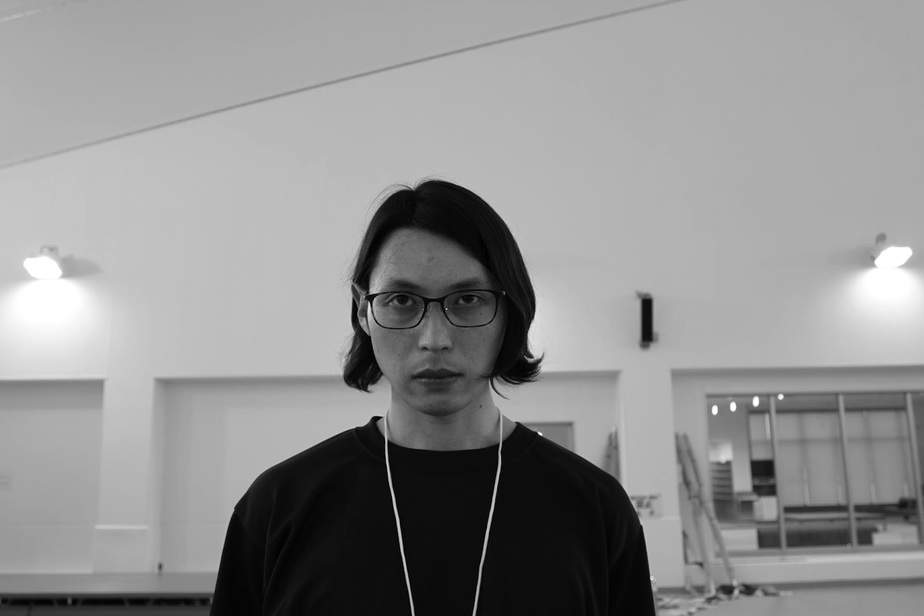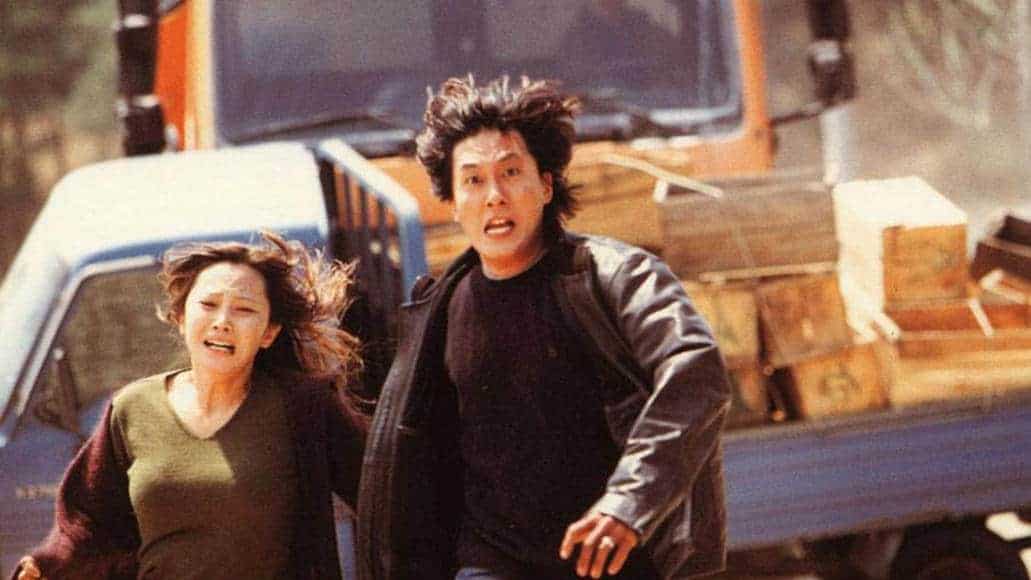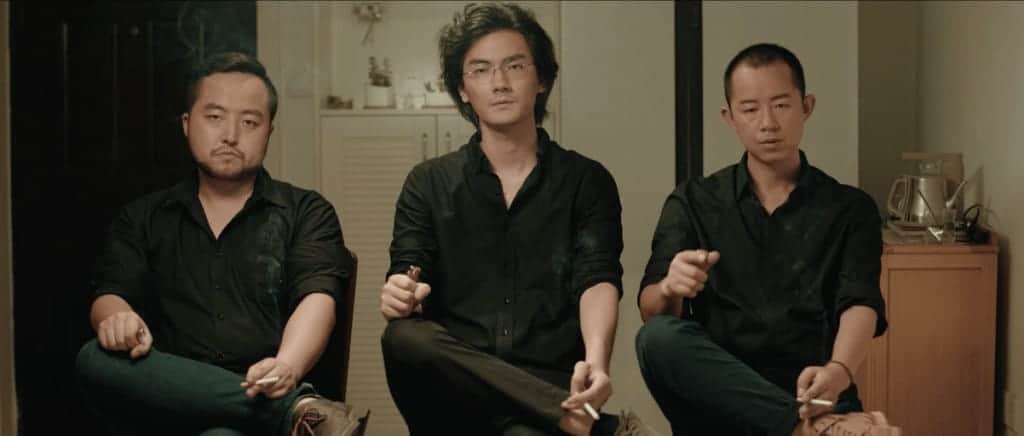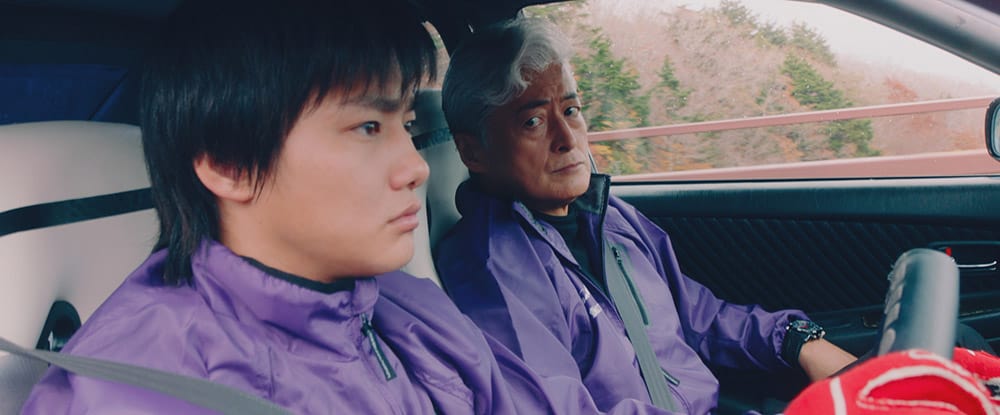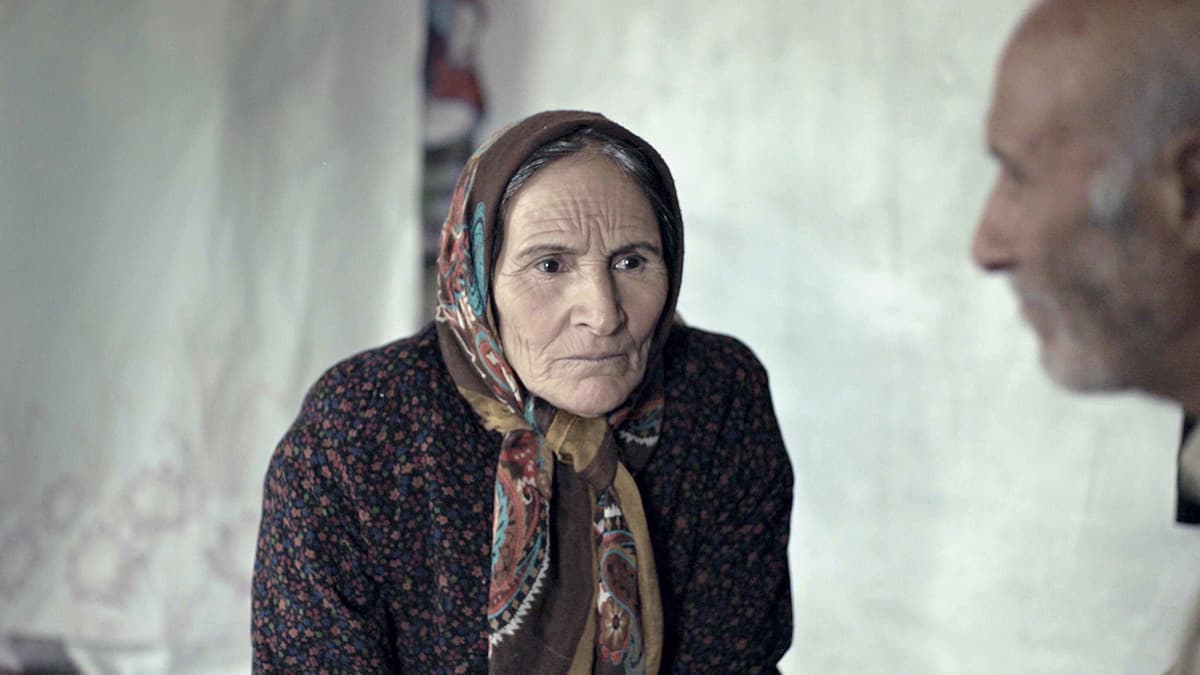Putting a camera in the hands of people whose own medium is not film, often leads to interesting final products, a passage down a road less travelled, an opportunity to experience the world through a novice's eyes. Heck, careers have been launched and even whole cinematic movements have been birthed because of such shoe-strap filmmaking. Creators working within the confines of limited budget and experience assembling a product from scratch with nary a plan in hand tend to serve their audiences a platter of rare delights screaming for appreciation. On the flipside, Hiroshi Yamamori's debut feature “Promise In The Palm” is a nauseatingly lifeless ordeal, an incomprehensible mess that falls flat on its face with all the grace, composure, and awkward hilarity of a Neil Breen or James Nguyen dud.
“Promise in the Palm” screened at Japan Film Fest Hamburg:

Meandering between the past and present with little regard for narrative cohesion, “Promise in the Palm” follows three colleagues struggling to plan their 25th high school reunion. Lacking inspiration in their endeavour to make it a memorable milestone, their epiphany lands on the absence of a beauty like Sakichi Sato (Yoshimi Kuroda) – the ex-girlfriend of their close friend Hiroshi Nakagawa (played by Yamamori himself) – and thus embark on a conquest to track her down with no information regarding her whereabouts; with every lead they chase up a dead end their search seems hopeless at best until they connect with those involved in her tragic past. Traipsing alongside the present day is the second narrative following the events of 25 years prior, tracing the origins of Sato and Nakagawa's relationship up until its eventual demise.
Initially conjuring the kind of saccharine sentimentality and selective nostalgia films of this ilk tend to peddle with glaringly mixed results, such evocations are practically starved of oxygen within the first ten minutes. In an instant, Yamamori and his cohorts drain the very essence out of an already lacklustre non-event – before it begins pouring its heart out to anyone who will listen – simply with their presence; the lack of an inspired script alone is enough to dislocate any well-meaning spectator from the arduous sequence of events let alone the flat, confusing, and often uncomfortable delivery of said script by a frankly dreary cast. The single most impressive aspect here is how a film clocking in at 100-minutes manages to pad its first hour with two narratives that could've gone nowhere so much faster if they actually had something to contribute: the bumbling search for Sato, complete with an investigative montage and a bout of flatulence, is a monotonous and even tedious endeavour to watch whereas the romantic storyline establishes zero chemistry between the leads, not exactly enough to justify the hole Sato's departure left within Nakagawa. By the time the reunion eventually comes about fatigue has truly cemented itself and neither the will-they-won't-they conclusion nor the “twist” is enough to keep the audience invested.
A wholly immemorable affair except for all the wrong reasons, it is difficult to ascertain whether “Promise in the Palm” is to be taken seriously or not. Its rushed delivery and execution mean any effort gone into making the jokes land, developing characters and relationships, or even gluing the story together is rendered obsolete. While budgetary, temporal, and experiential restrictions does not necessarily make a film bad, the inability to leave a solid impression on your audience certainly does; the question of whether the film is a serious drama or an offbeat, self-aware satire of romantic films is dogged by wooden performances – Yamamori's uninterested take on the “younger” Nakagawa is inexcusable given his talent as a jazz guitarist – cringeworthy sequences, and the bizarre decision to cast three of the main actors as both their younger and present selves. While this latter point held potential for on-screen tomfoolery among friends this too was wasted – the exception to all of this is Tatsumasa Furubayashi as Kuroda, the bald head of the reunion committee donning a wig as his younger self, who takes every opportunity for his hammy, over-the-top performance to steal the show.
Adding to this inexhaustive list is the film's basic structural composition. Its superfluous use of the fade cut is by all means a reckless decision for any filmmaker – here, it drags the already snail-like pace down to a glacial crawl, making “Promise in the Palm” feel much longer than it actually is. With a new line of dialogue comes a whole new cut that ought to feel like a homage to Ozu but is instead overwhelmingly jarring, made all the more headache-inducing when, thanks to the editing, the actors' cues all feel missed or at best delayed. When it comes to the cinematography, two things stand out: an abundance of slight jerks and zooms which somehow dislocates the experience further, and the overall sensation that Yamamori is more influenced by commercials than actual cinema; this isn't inherently a bad thing on its own but coupled with everything else the overall sensation is far from pleasant.
At the head of all these operations – as director, writer, DP, editor, producer, and composer as well as leading man – Yamamori comes off as more Tommy Wiseau than Shinya Tsukamoto, sans the larger-than-life cult of personality Wiseau exudes. There is a semblance of a vision nestled deep beneath the beige exterior, but it is unclear as to what that vision was supposed to be. Feeling more of an extended yet unconvincing infomercial promoting the town of Niimi, Okayama Prefecture with a story shoehorned in, “Promise in the Palm” is an aloof quandary uncertain of its own identity. Sadly, there is very little to take from this whole experience besides a small handful of awkward laughs and exasperation…and one of the most unconvincing confrontations in recent cinematic memory.



